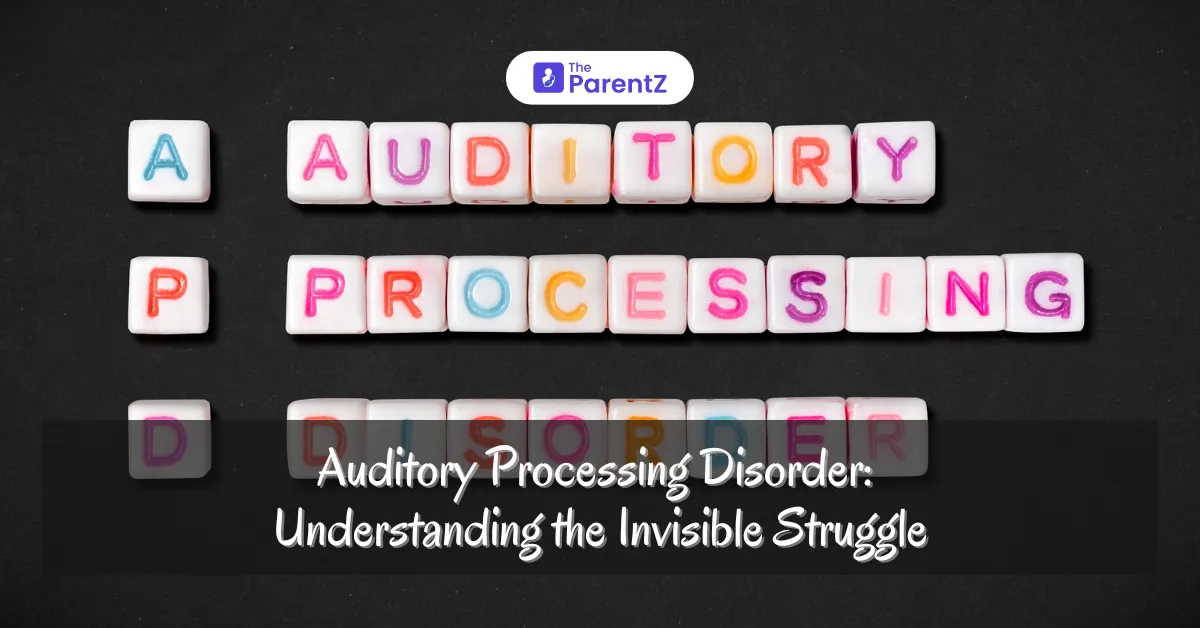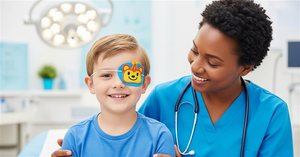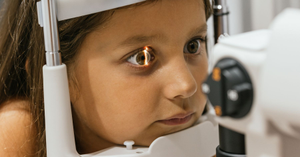What Is Auditory Processing Disorder (APD)?
Auditory Processing Disorder (APD), also known as Central Auditory Processing Disorder (CAPD), is a condition where the brain struggles to interpret and process sounds accurately, despite normal hearing ability. Individuals with APD may hear sounds clearly but find it difficult to distinguish, understand, or process them, particularly in noisy environments.
APD affects children and adults and can significantly impact communication, academic performance, and social interactions. Early recognition and intervention are crucial for managing this condition effectively.
Signs and Symptoms of APD
In Children:
• Difficulty following verbal instructions, especially multi-step directions.
• Frequently asking for repetition (“What?” or “Huh?”).
• Struggling to differentiate similar-sounding words (e.g., “cat” vs. “cap”).
• Challenges in reading, spelling, or understanding language-based tasks.
• Trouble focusing in noisy environments, such as classrooms.
In Adults:
• Difficulty understanding conversations in crowded or noisy settings.
• Misinterpretation of spoken information or instructions.
• Frequent need for clarification or repetition.
• Challenges remembering auditory information.
• Struggles with phone conversations due to lack of visual cues.
Causes of APD
The exact cause of APD is not fully understood, but several factors may contribute to its development:
1. Neurological Differences: Abnormalities in the brain areas responsible for processing auditory signals.
2. Premature Birth or Low Birth Weight: These conditions may increase the risk of developmental delays, including APD.
3. Head Injuries: Trauma to the brain can impair auditory processing abilities.
4. Chronic Ear Infections: Repeated infections may affect auditory signal processing.
5. Coexisting Conditions: APD often occurs alongside ADHD, dyslexia, or language processing disorders.
How APD Affects Learning and Communication
Academic Challenges:
Children with APD may struggle with:
• Reading and Language: Difficulty connecting sounds to letters or understanding spoken language.
• Classroom Instructions: Trouble processing verbal directions, particularly in noisy classrooms.
• Note-Taking: Difficulty following along during lectures or discussions.
Social Challenges:
• Misunderstanding jokes, sarcasm, or nuanced conversations.
• Difficulty keeping up with fast-paced discussions.
• Avoidance of social interactions due to fear of miscommunication.
Diagnosing APD
Diagnosing APD requires specialized testing by an audiologist. This includes:
1. Hearing Tests: To rule out hearing loss or physical issues with the ears.
2. Auditory Processing Tests: Assessing the brain’s ability to distinguish, interpret, and recall sounds.
3. Language and Cognitive Evaluations: To identify coexisting learning or language difficulties.
Diagnosis is typically made after the age of 7, as younger children’s auditory processing skills are still developing.
Tips for Supporting Individuals with APD
1. Improve the Listening Environment
• Reduce background noise by turning off TVs, fans, or music during conversations.
• Use quiet spaces for study or work to minimize distractions.
2. Simplify Communication
• Speak slowly and clearly, emphasizing key points.
• Break instructions into smaller steps.
• Use visual aids, such as written instructions or gestures, to support verbal communication.
3. Utilize Assistive Technology
• FM Systems: Devices that amplify a speaker’s voice directly to the listener, reducing background noise.
• Audio-Visual Tools: Videos with captions to reinforce auditory information.
4. Provide Academic Accommodations
• Allow extra time for tasks involving listening comprehension.
• Provide written notes or recordings of lectures.
• Implement Individualized Education Programs (IEPs) or 504 Plans for school support.
5. Foster Self-Advocacy
Teach children and adults with APD to:
• Ask for repetition or clarification when needed.
• Inform teachers, colleagues, or peers about their needs.
Therapy Options for APD
1. Auditory Training Programs
These programs aim to improve the brain’s ability to process sounds. Activities include sound discrimination exercises, auditory memory games, and pattern recognition.
2. Speech-Language Therapy
Focuses on improving language comprehension and communication skills.
3. Cognitive-Behavioral Therapy (CBT)
Helps individuals cope with frustration or anxiety resulting from APD-related challenges.
Research Insights on APD
• A 2020 study in The Journal of the American Academy of Audiology highlighted that early intervention significantly improves auditory processing skills in children with APD.
• Research in The Hearing Journal (2021) emphasized the effectiveness of assistive technologies, such as FM systems, in enhancing academic performance.
• Findings from the American Speech-Language-Hearing Association (ASHA) suggest that multi-sensory learning approaches yield the best outcomes for children with APD.
Supporting Mental Health in Individuals with APD
The challenges associated with APD can lead to anxiety, frustration, and low self-esteem. To address this:
• Offer positive reinforcement and celebrate small achievements.
• Encourage open discussions about feelings and experiences.
• Seek support from mental health professionals if needed.
Why Early Intervention Matters
Recognizing and addressing APD early can prevent long-term struggles with learning, communication, and social interactions. With the right strategies, children and adults with APD can thrive in school, work, and personal relationships.
For more resources, explore our articles on learning disabilities, speech therapy techniques, and mental health support for children.
Conclusion
Auditory Processing Disorder may present unique challenges, but with proper diagnosis, support, and interventions, individuals with APD can overcome these hurdles and lead fulfilling lives. By creating an environment that accommodates their needs and promotes growth, parents, educators, and caregivers can help them unlock their full potential.








Be the first one to comment on this story.